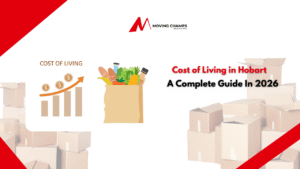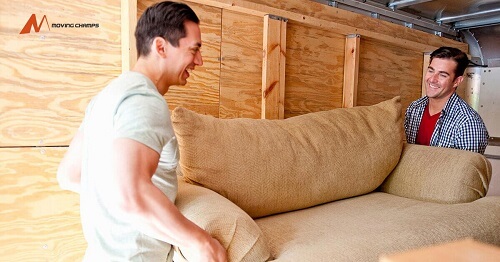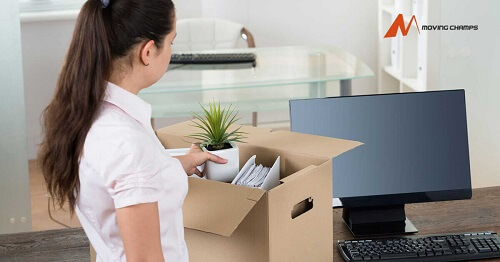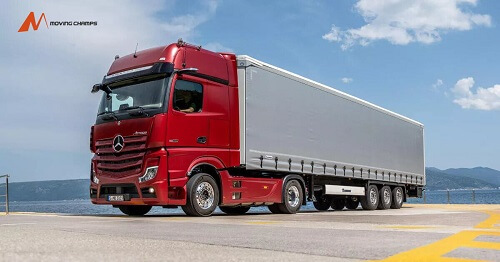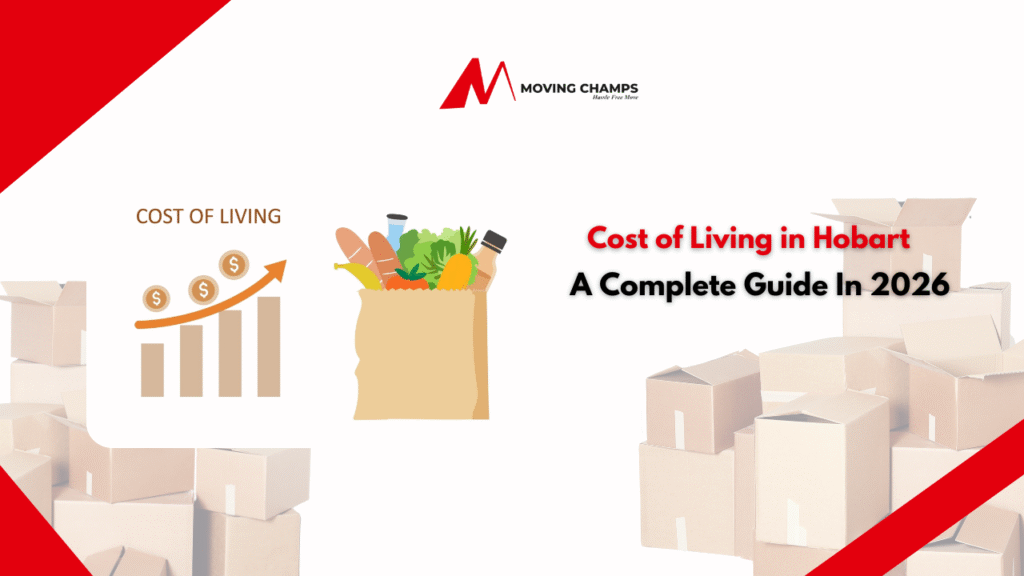Canberra Cost of Living Breakdown: Rent, Bills, Transport & More
Canberra Cost of Living
Canberra, the capital city of Australia, is a unique blend of modern city life and history, a national treasure and an environmental wonder. Canberra is a city of high-quality living, where you can get by, but living here costs more than in other parts of Australia. For anyone setting up to work, study, or start a new life in Canberra, it is essential to understand not only the average costs of living but also the potential variations that can affect your monthly budget. “How much do I have to pay in utilities, Internet, and everything else? How much are bills on top of my rent?” These types of questions many new arrivals ask themselves.
Knowing the costs of basic things can help you plan your spending habits mindfully so that no unpleasant surprises arise later on. In this blog, we will guide you through the most essential expenses associated with living in Canberra, including accommodation and utilities, transport, food, clothing, and medical care.

Cost of Accommodation
For people living in Canberra, accommodation is often the biggest expenditure. The average price of a house in Canberra depends on several factors, like the house type, where it is located, and whether you share or live by yourself.
- Shared Accommodation: If this is your first time away from home, shared accommodation may be an easy option. In Canberra, it runs between AU$200 and AU$400 a week for a room, with good conditions. Popular suburbs with lots of room, on this sort include Dickson, Kingston, and Braddon, which are close to the city centre and have convenient public transport to work or other facilities.
- Private Rentals: Single-bed apartments in Canberra are in the range of AU$400-AU$600 a week, while two bedrooms cost anywhere from AU$550 to AU$800 weekly, depending upon their location. Some suburbs, such as Manuka, Barton, and O’Connor, are slightly more expensive because they are closer to the city centre.
- Student Accommodation: The on-campus accommodation can cost from AU$288 to AU$556 per week, depending on housing and facilities.
Therefore, it’s a good idea to book early if you want to secure your housing. The Canberra rent market remains comparatively stable, but given the number of renters eager for a place, especially during university semesters or when the Public Service is being hired, it is advisable to make an early reservation for your rental.
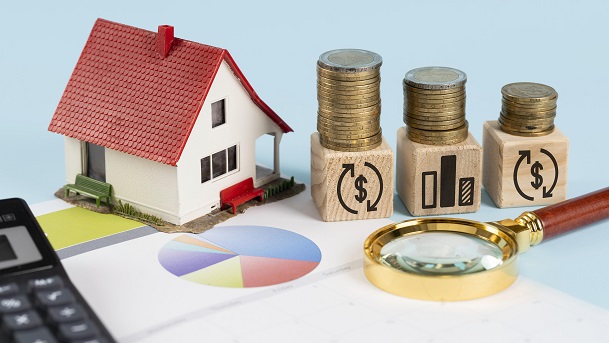
- Annual Estimate for Accommodation: A single person can expect to spend between AU$20,800 and AU$31,200 per year on rent alone, depending on the lifestyle one opts for.
Utilities & Bills
Rent is not the only major expense – renters must also pay for utilities, such as electricity, water, gas, and internet, which can add up to a significant portion of your monthly budget as well. To live a comfortable life in Canberra, it’s important to keep track of these regular expenses.
- Electricity, Gas & Water: On average electricity bill in Canberra in the ACT ranges between AU$20- AU$50 per week; however, it totally depends on the amount that you use and the size of your apartment. Prices typically increase in the winter season due to high demand.
- Internet & Mobile Plans: A standard high-speed connection costs around AU$20 AU$30 per week. Mobile plans range from $10–$30 a week, depending on the provider and your data needs.
- Government Rebates: The Australian government provides rebates from time to time. One example is the Electricity, Gas, and Water Rebate, which will provide low-income families with an annual support worth up to AU$800—helpful indeed for everyone’s cost of living in general.

Practical Tips to Save on Utilities
Use energy-efficient appliances: Look for products with high energy ratings to reduce electricity bills.
- When not needed, switch off: Turn lights off, the heating down, or equipment when it isn’t being used in order to avoid unnecessary costs.
- Package internet and mobile plans: If you hook up your two services with the same operator, many providers offer discounts over time.
- Monitor usage: Keep an eye on your water and power meters, because by regularly monitoring usage, you can detect leaks quickly, and it can help you mend a fault before it grows worse, thus saving money in doing so. If you are using more than usual, then this may also be dangerous for future times when the bill comes due as well! Spot unusual spikes early.
- Take advantage of rebates: Check your eligibility for government schemes to lower your household expenses.
Transportation
The city has an efficient and versatile public transport system that is well-connected. Public transport system, extensive cycling paths, and smooth roads that make driving easy. Whether you prefer buses, biking, or driving, the city provides multiple options to suit your lifestyle and travel needs.
- Public Transport: Buses and light rail in Canberra use the MyWay card, a smart travel card that can be tapped on and off. This speeds up travel time and makes journeys more comfortable than ever before. Single fares range from AU$2.50 to AU$4.50, depending on the zone, while monthly passes cost about AU$132.
- Cycling & Walking: Canberra is a great cycling city because many locals enjoy cycling, including senior citizens, who cycle here due to the city’s extensive network of cycle paths, which are reserved for their use. It not only helps you save money but also provides many health benefits.
- Auto Ownership Vehicle: Ownership brings flexibility, but it also has ongoing costs in gas, insurance, registration and parking. The cost of fuelling a middle-range vehicle is typically AU$150 to AU$250 per month, depending on usage.
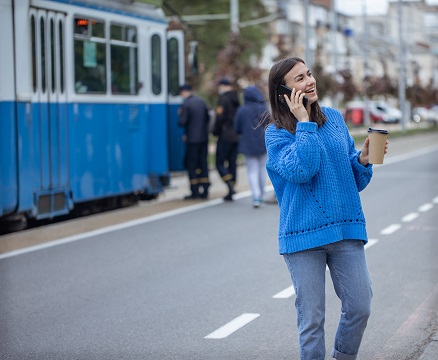
Tips to Save Transport Cost:
- Take Public Transport Regularly: For daily commuting, buses and light rail are cost-effective and convenient. Consider buying the monthly My Way pass to save even more.
- Carpool or Car Share: Share rides with colleagues, friends, or neighbours to reduce fuel and parking costs for occasional trips. GoGet is a car-sharing service that hires out cars by the hour, and a local ride-sharing group or app makes this even easier.
- Cycle or Walk for Short Trips: With over 400 km of cycle paths and walkways, use Canberra as a gym and travel swiftly. It’s free and health-promoting with it!
- Travel Off-Peak: Use public transportation during off-peak hours when possible to avoid the crowds, and sometimes cheaper fares make it well worth doing so.
- Look for Alternative Modes of Transportation: For occasional trips, use e-scooters or bike rentals, as well as car-sharing services instead of owning a car.
- Maintain Your Vehicle: If you own a car, maintain it well – you can save a lot of money on fuel costs. Proper tyre pressure, regular servicing, and good driving habits all contribute.
Read More – Brisbane Cost of Living Breakdown: Rent, Bills & Transport Expenses
Groceries & Dining Out
You do not have to pay very much to eat in Canberra; food costs vary widely depending on your lifestyle. Anyhow, if you cook by yourself at home and still use fresh ingredients like fruit, vegetables, dairy products, and meat, you’ll find it not only healthier but cheaper than eating out, as many of us tend to do these days.
- Groceries: A single person can expect to spend AU$100–AU$150 per week on groceries. At stores like Coles, Woolworths, and Aldi, you can find everything that you need: bread, milk, meat, and fruit. For fresher and often less expensive products, local farmers’ markets are a great option.
- Dining Out: Casual meals typically cost AU$15–AU$25, while mid-range restaurants charge around AU$20–AU$40 per person. Prices may vary slightly when you eat at fashionable areas like Braddon or Kingston due to the location.
- Monthly Estimate: On average, budget around AU$319 per month simply for groceries and the occasional dining out. This figure can depend upon your eating habits, how often you choose to cook, and how often you eat away from home.

Tips to Reduce Food Bills
- Eat at Home: It’s much cheaper to cook meals for yourself than to buy in. You can also save time and money by batch cooking frozen leftovers.
- Buy Fresh Fruit and Vegetables from Farmers’ Markets: At farmers’ markets, you can often get cheaper fruit and vegetables compared with supermarkets, particularly in season.
- Loyalty Programs and Discount Apps pay off: Flybuys or Everyday Rewards, collect points and use ShopFully, OLIO, Too Good To Go to find leftover food or bargain offers.
- Plan Your Meals and Shop Intelligently: Make a shopping list for the coming week’s meals. Look at the sale flyer to avoid impulse purchases.
- Stock up in Bulk: Buy staples like rice, pasta, beans, and frozen vegetables by the 10-kilo bag– much cheaper than buying small quantities.
- Mix It Up: Aldi is probably best for packaged goods but sometimes either Coles or Woolworths has much better fresh produce deals.
- Don’t Waste Your Food: Store leftovers properly, freeze extras, and recycle ingredients to save at least US$20-50 a month.
- Choose Supermarket Brand: The quality is similar, and even if you buy some other item on special once in a while, those products will come out cheaper in total most of the time.
- Cook Simple, Nutritious Meals: Using cheap, but healthy ingredients such as rice or lentils. Or try eggs and fresh vegetables.
Healthcare
Australia has a fully established national healthcare system, and in Canberra, an array of medical services is most easily available. Thanks to the latest improvements, the state-of-the-art hospitals here provide comprehensive emergency and specialist care, as well as specialised clinics and community health service centres.
1. Medicare
Australians and permanent residents are entitled to Medicare, the public health system, which provides a number of essential benefits such as:
- Visits to general practitioners
- Hospital care as a public patient
- Tests and scans of various kinds(e.g., X-rays, pathology)
- Some prescription medicines through the Pharmaceutical Benefits Scheme (PBS)

2. Private Health Insurance
While private health insurance is not mandatory, it is recommended to enhance your level of cover beyond what Medicare provides, for example:
- Dental care
- Physiotherapy and other allied health services
- Elective surgeries
- You can also gain private hospital accommodation through private health insurance plans.
Premiums are variable depending on the individual provider, level of coverage, and age; many Aussies combine Medicare with private insurance as a strategy for reducing waiting times on elective procedures and expanding their coverage overall.
3. Overseas Student Health Cover (OSHC)
All international students studying in Australia are required to have OSHC for the duration of their time here, which can cover:
- Medical care if you are sick or injured and need hospital treatment
- Access to GP care, emergency medical services, and – to a limited extent – some medicine on Prescription
The cost of OSHC premiums typically ranges from AU$450 to AU$600 per year, depending on where you purchase coverage and exactly what is included under which kind of plan.
It is highly advisable that students ensure their policy provides coverage for the entirety of their time here and make doubly sure they find any extra benefits, such as dental care or vision, that are needed.
Practical Tips to Save on Healthcare Costs:
- Use Free or Low-Cost Clinic: The emergency room at a large hospital offers free or low-cost consultations, even for visitors and temporary residents. It may be a socially acceptable option.
- Take Part in Preventive Health Programs: Free or discounted screenings, vaccinations, and checkups offered by government or local campaigns are something you shouldn’t let pass you by.
- Apply Discount Programs of Pharmacies: Compare prices in different pharmacies, inquire about generics, and use loyalty programs or apps to save.
- Regular Health Check-ups: Regular visits–annual or semi-annual–help people maintain chronic conditions and prevent expensive emergency treatments.
- Telehealth Services can help save you time. You’ll have additional: Online consultations save time and money for minor illnesses or follow-ups.
- Know Your Health Insurance Coverage: Find out what your travel, student, or private insurance does and doesn’t cover to make sure there are no big surprise Costs on the horizon.
- Keep Your Medical Records in Order: Prepare a folder to keep test results, doctor prescriptions, and medical history handy–so you won’t wind up re-running the same tests.
- Enter Local Health Programs: Many times, non-governmental organisations (such as NGOs), schools, and local centres operate free or low-cost programs on wellbeing, diet therapy, mental health, and other issues.
Education & Childcare
When families move to Canberra, education and especially child care are among their foremost financial concerns. Australia has a comprehensive education system that encompasses public and private schools, as well as a variety of options for childcare to help support younger children.
- Public Schools: In general, Canberra’s public schools are free and provide excellent teaching and brand new schoolhouses. However, families still have to cover the costs of uniforms, field trips, sports, and after-school clubs. Each year, parents can expect to spend an average of AU$200 to AU$500 per child. The actual amount depends on your children’s ages and the level of involvement they have.
- Private Schools: In private schools, children can receive a variety of courses, see new facilities, and have different learning theories offered to them. The tuition fee is normally between AU$8000 and AU$20000 per year, plus outlays for uniforms or optional activities. Families should keep these expenses in mind when they calculate their outlay.
- Childcare: For families with toddlers, the cost of full-time childcare becomes a major issue. The cost of full-time childcare in Canberra generally varies from AU$100 to AU$150 per day. Fortunately, for families who meet the eligibility criteria, the ACT Government offers subsidies on their payments towards child care. These subsidised childcare arrangements play an important role in ensuring that ordinary families can afford top-quality early childhood education.

Tips for Education & Childcare Savings:
- Savings on Child Care: Child Care Subsidy: The NSW Government helps with the costs of state-approved childcare for children under 13 years old. Grandparents or families in temporary financial difficulty are also eligible to apply for this scheme.
- Three-year-olds Childcare Subsidy: Get up to 300 hours each year for children in this age range living in the ACT.
- Preschool Fee Help: For three-year-olds in the Flying Start to School program, you are given a subsidy as high as AU$2,575.
Another Tips
- Stay Informed: Often check back on Services Australia and the ACT Government websites — don’t forget your local sites too. Keep in touch or sign up for ‘news’ or ‘alerts’. News and news emails help ensure you never miss out on opportunities.
- Plan Ahead: Free Three-Year-Old Preschool Programs are popular, with vacancies limited. The early bird gets the most comfortable position! Enrol early for these popular programs or similar ones in other countries, such as England
- Use community resources: At community centres, libraries, and regional organisations, programs and events are run free or nearly free. Examples include workshops, summer in the Fields (PCYC sports) and Holiday workshops, and school programs at 20 of the Libraries ACT branches
Miscellaneous Expenses
Entertainment plays a large part in the total cost of living; however, it depends much on the tastes and interests of individual people. Some people enjoy nothing more than a simple leisure activity, while others prefer to spend more on dining, events, concerts, and other activities. Below, we’ve provided an overview of the average entertainment costs in Canberra that might help you plan your budget better.
- Entertainment: In Canberra, movie tickets generally cost between AU$15–AU$25, while going to music concerts or sporting events, the ticket price may be anywhere from AU$50 up to even AU$100. For those who enjoy arts and culture, annual membership in galleries or theatres typically runs between AU$100 and AU$250.
- Fitness & Wellness: Canberra residents are fitness enthusiasts, so you will have many options here; however, the average gym membership price ranges from AU$20 to AU$60 per week. However, specialised fitness studios for yoga and similar workouts will generally charge slightly more.
- Clothing & Personal Care: In order to live your life as usual, you can expect to spend around AU$50–AU$100 per month on clothing, haircuts, and skincare products.
A few tips to save money on miscellaneous expenses?
- Enjoy Free or Low-Cost Entertainment: Make full use of Canberra’s free attractions, such as the National Gallery, National Library, and even outdoor events and festivals. Look for street theatres in parks (they are usually free), pieces being staged close to your living place, town hall concerts, and cultural venues that have off-peak ticket rates on Saturday evenings.
- Plan Your Entertainment: Utilise apps like Dendy Canberra, Hoyts Cinemas, TIX Australia, Ticketmaster, and Ticketek to find affordable tickets for movies, concerts, or sports games.
- Smart shop: Take advantage of sales, outlet stores, thrift shops, etc. Buy personal care products in bulk or during promotions so you save money over the long term.
- Limit Overload In Subscriptions: Review your streaming services and other paid apps, and try to keep only the ones you actually use. Alternatively, consider sharing with others to reduce your monthly expenses.
- Keep an Expense Journal: Use apps for budgeting, or you can keep a small notebook to track your daily outgoings and other expenses. Once you know where all the money goes, it’s easy to see which things can be trimmed without affecting quality of life and which should stay in place.
Also Read – Melbourne Cost of Living Breakdown: Rent, Bills, Transport & More
Why Hire a Professional Removalist for Your Move?
Moving to or within Canberra can be stressful and time-consuming, especially if you have a lot of belongings or expensive furniture. Making smart choices while preparing for your move, such as budgeting carefully and comparing services, can help control costs.
Hiring a professional removalist takes much of the stress off your shoulders. Experienced movers like us, “Moving Champ” , know how to pack, transport, and handle items safely – thus reducing risks of damage or injury through incorrect handling, while saving you time. Services like a Man With a Van can assist with just a few items for small moves; full-service movers, on the other hand, help with an entire household.
Professional movers can provide timely support regardless of how petty or last-minute, and ensure that your move goes smoothly, free of any unnecessary delays. If you choose experienced removalists, you can quickly become entrenched in your new house and forget about the formalities.

Conclusion
Canberra is where modern comfort and beauty come together with safety. Thanks to its national healthcare system and well-planned residential districts, Canberra has earned a reputation as one of Australia’s most livable cities. In addition, the city offers abundant recreational opportunities for residents to enjoy.
However, the cost of living in Canberra is higher than in other cities in Australia, but that shouldn’t be a reason for changing your plan.
Living a budget-conscious life and making wise investments make this city’s expenses more manageable.
Even if you are a student, a professional, or relocating with your family for a better life, understanding the cost of living in Canberra will save you from any nasty financial surprises. This city is worth the chance because it offers a high quality of life through its diverse cultural events, outdoor activities, festivals, and family-friendly facilities.
Popular Posts
Popular Categories
Our Services
Request A Free Quote







